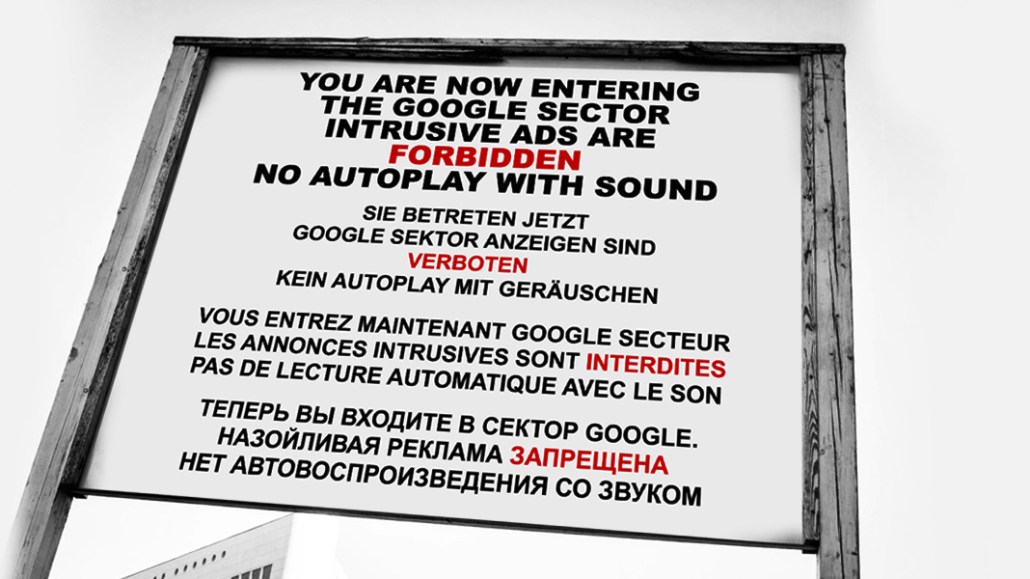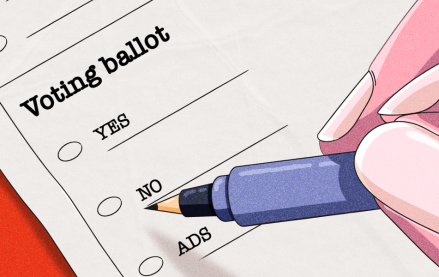How publishers are preparing for Google’s ad-blocking version of Chrome

As Google prepares to roll out an ad-blocking version of Chrome, it’s been scoring websites using its Ad Experience Report. The tool provides screenshots and videos of ads that have been identified by the Coalition for Better Ads as most annoying to users, such as pop-ups and autoplaying video ads with sound and “prestitial” ads with countdown timers. While there are little to no worries for publishers that already avoid such ads (it’s hard to disagree with Google’s stance that people shouldn’t have to put up with video ads that play automatically with the sound on), others that struggle to monetize or have less resources to fix their sites have some concerns. Here are a few of them:
Pop-up ads are often maligned because they get in between the reader and the content. Pop-ups account for 54 percent of violations on mobile and 97 percent on desktop on the sites it’s screened so far, Google said. Some publishers have the impression that newsletter sign-up pop-ups will also be blocked, though, forcing them to decide between removing those, which could mean sacrificing some newsletter sign-ups, or risk Google blocking all their site’s ads. That’s a trade-off no publisher wants to have to make when trying to make direct connections with readers.
“What do we do? We need people to sign up for our newsletter,” said Paul Likins, vp of revenue operations at American Media Inc., whose Men’s Fitness and National Enquirer sites were cited by Google for violations.
A Coalition for Better Ads spokesperson said the coalition is evaluating feedback it’s receiving on that and other issues. The coalition also hasn’t studied in-stream video ads and ads within videos (prerolls and midrolls) so its initial guidance doesn’t address those. Google, meanwhile, said popups for publishers’ newsletters or surveys aren’t considered ads so they shouldn’t be blocked, although if they’re served by third parties, they could be labeled as ads, in which case the publisher would have to contest the finding.
Google also dinged sites whose ads fail its ad density test, or take up more than 30 percent of the page they’re on, as described here. But guidelines are gray. Some ads take up a bigger share of screen on some devices that make up a smaller share of the smartphone market, points out Melissa Simson, vp of ad product innovation at Kargo. It’s unclear if Google will punish publishers for having violations on those devices, even if they represent a small portion of users.
Enforcement is another broad concern. Google hasn’t specified how many violations would cause a site to fail. Google has told publishers it will look at each site periodically. “A potential downside would be if there is a question on a bad ad, if you’re working in the programmatic space, you have some amount of control, but sometimes, bad ads get through,” said one exec at a midsize publisher. For some, the fact that it’s Google cracking down on bad ads gives them leverage over ad buyers who still want to push intrusive — sorry, high-impact — ads on people.
“It gives publishers a bit more ground to stand on to focus on great user experience,” said Chris George, evp of product marketing and sales strategy at PopSugar. Still, the burden will fall more heavily on smaller publishers that are desperate for the revenue and don’t have a dedicated Google rep or extra design and ad tech resources for their sites. For its part, Google said it’s still working out details of enforcement and wants to hear publisher feedback about the process.
More in Media

Publishers revamp their newsletter offerings to engage audiences amid threat of AI and declining referral traffic
Publishers like Axios, Eater, the Guardian, theSkimm and Snopes are either growing or revamping their newsletter offerings to engage audiences as a wave of generative AI advancements increases the need for original content and referral traffic declines push publishers to find alternative ways to reach readers.

The Guardian US is starting its pursuit of political ad dollars
The Guardian US is entering the race for political ad dollars.

How much is Possible’s future in Michael Kassan’s hands?
Some people in the know at Possible said they see the conference taking a bite out of Cannes’ attendance, most acutely by U.S.-based marketers who could save money by staying on this side of the Atlantic.







